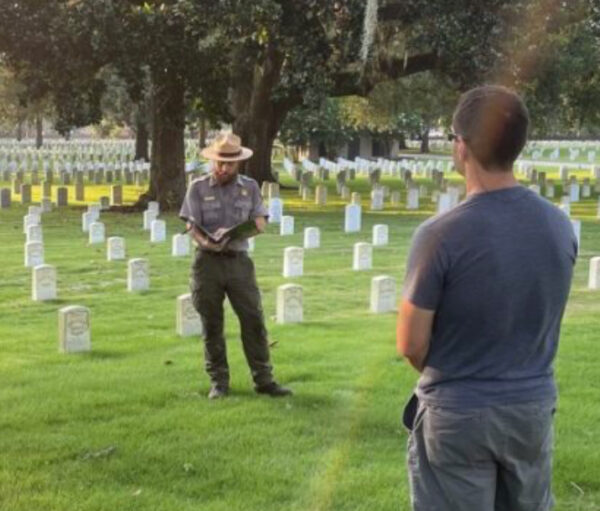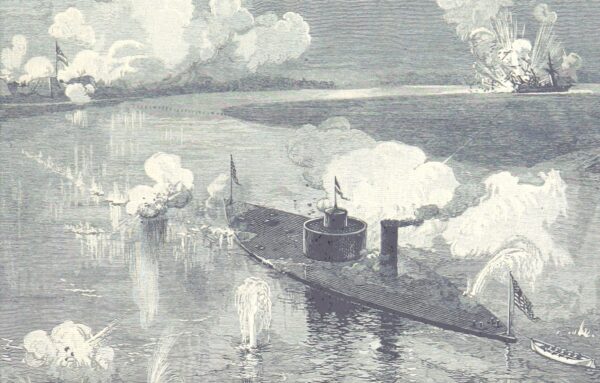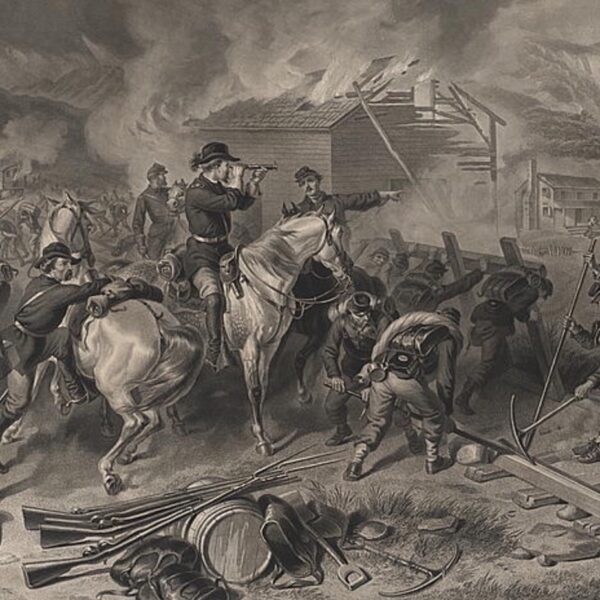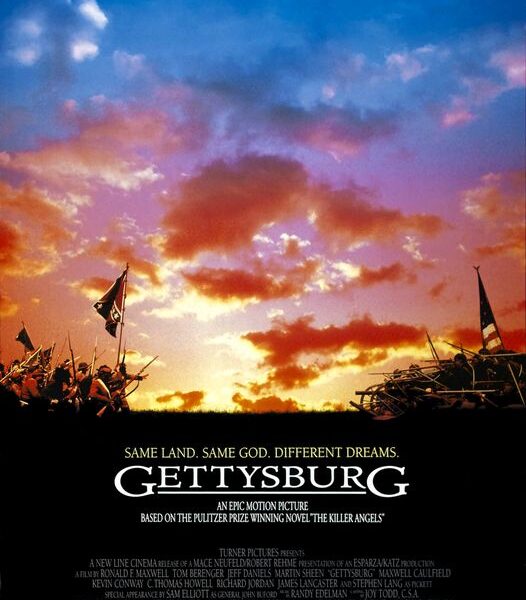On March 17, 1863, Josiah Marshall Favill, a young lieutenant in the 57th New York Infantry, was one of many soldiers in the Army of the Potomac to observe the elaborate St. Patrick’s festivities being hosted by General Thomas Francis Meagher and the men of the Irish Brigade. When he returned to his regiment’s camp later that day, Favill recorded the following observations in his diary:
This being St. Patrick’s day, or the 17th of Ireland, as the men call it, General Meagher and staff celebrated by giving a steeplechase on the parade ground of the division. A course was carefully laid out, ditches dug, hurdles erected, and valuable prizes offered to the contestants. The conditions were simply that none but commissioned officers of the division could ride, which was sufficiently liberal. A crowd of officers presented themselves aspirants for honors, as well as prizes. Meagher, glorious in fancy undress uniform liberally covered with gold braid, and followed by a jolly lot of staff officers, rode about the course, master of all he surveyed. He is a very good horseman. Most of the general officers of the army, with their many lady friends, were invited, resulting in a magnificent crowd. Amongst many notables riding in the train of the commander-in-chief, was the Princess Salm Salm, a beautiful and fearless horse woman. When she first came on the ground, she rode her horse up to a five foot hurdle and nonchalantly took a standing jump, clearing it handsomely. [Major General Joseph] Hooker looked superb, followed by a great crowd of staff officers and retinue of mounted ladies.
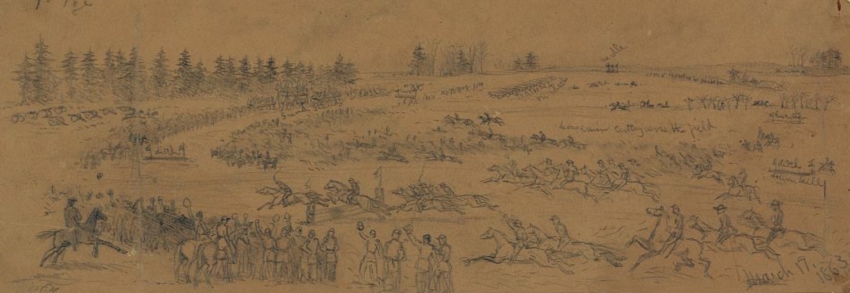 Library of Congress
Library of CongressEdwin Forbes’ sketch of the steeple chase conducted by the Irish Brigade during St. Patrick’s Day in 1863.
The race was a great success, there being many falls, many horses injured and a lot of riders. Wilson, of Hancock’s staff, rode, although getting one or two bad falls, managed to pull through, and win one of the prizes. Jack Garcon the O’Malley dragoon aide, won first prize and was fully entitled to it. The course was surrounded by thousands, kept in order by guards posted entirely around the field. In the evening General Meagher gave a reception, and of course, all the brigade and other commanders, with their staffs, were invited. Zook, Broom, and I attended, but the pace was too fast for Zook and so we retired early, leaving Broom, who is quite equal to every emergency of this sort, to do the honors.
Within a large hospital tent, mounted upon a table in the center, stood an immense punch bowl filled to the brim with the strongest punch I ever tasted. All were invited to partake and such a gathering of jolly, handsomely dressed fellows, I never saw before. The Irish brigade was in its glory. It understood the situation, was master of it, and quite immortalized itself.
 Library of Congress
Library of CongressGeneral Thomas Francis Meagher distributes the day’s prizes during the St. Patrick’s Day celebrations in the Army of the Potomac in 1863.
There was the inevitable quarrel. How could it, otherwise, have been complete? The general and the brigade surgeon ended in challenging each other to mortal combat, and for a time matters assumed a threatening aspect. The following morning, however, when the effects of the nectar had subsided, the surgeon apologized in due form, and peace resumed her loving sway.
Mitchell, of Hancock’s staff, was in high feather, and might easily have been mistaken for one of the festive brigade.
Source
The Diary of a Young Officer Serving with the Armies of the United Sates during the War of the Rebellion (R. R. Donnelley & Sons Co., 1909)

